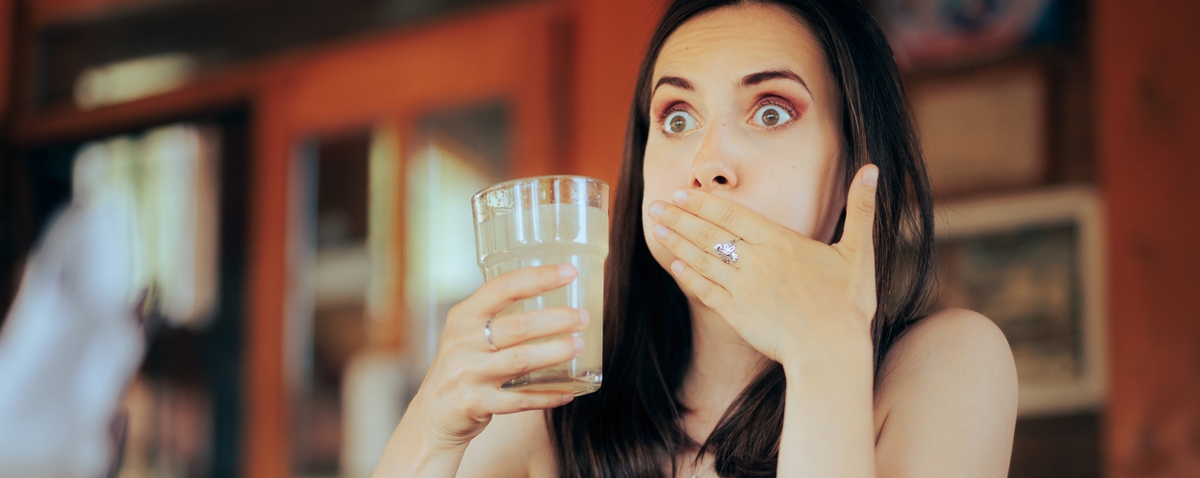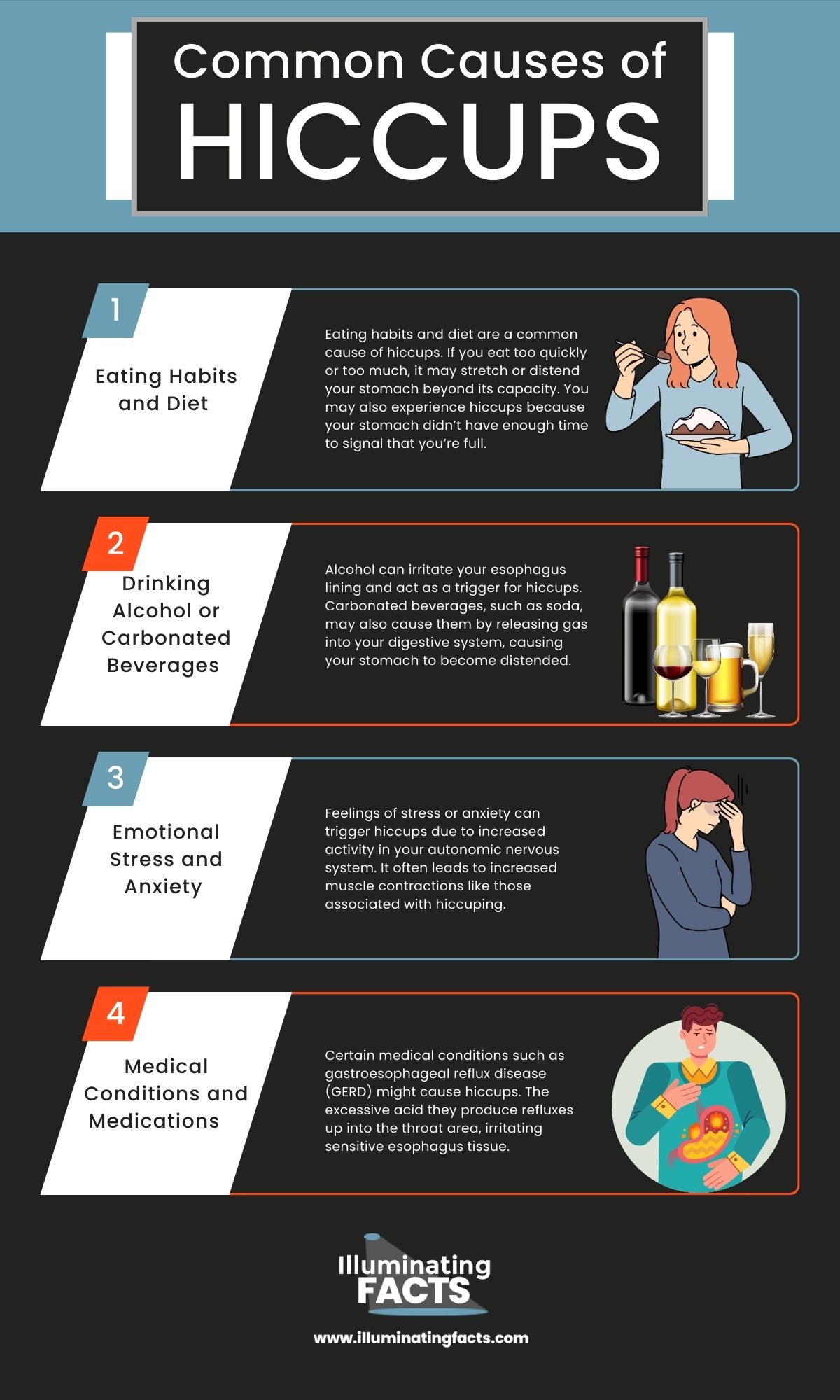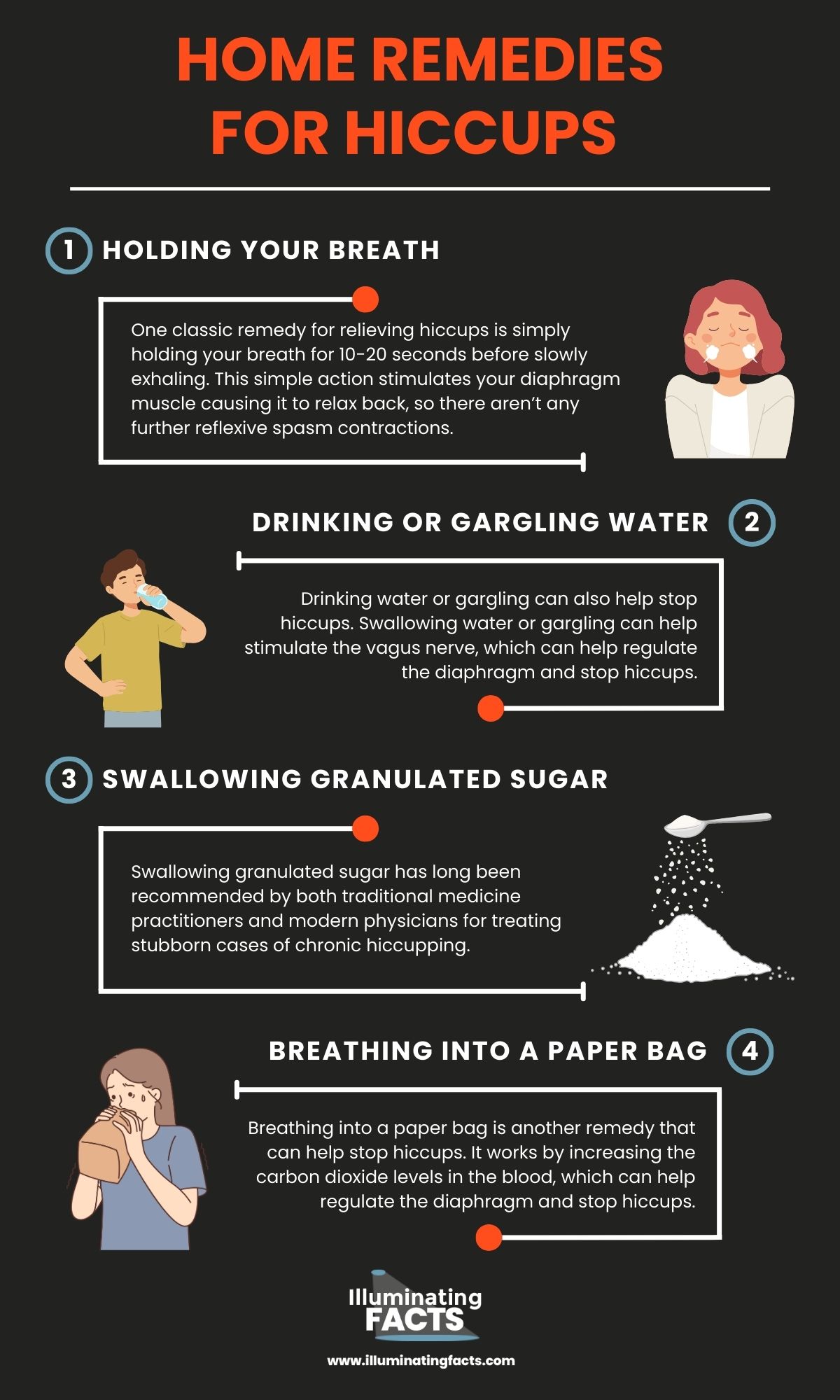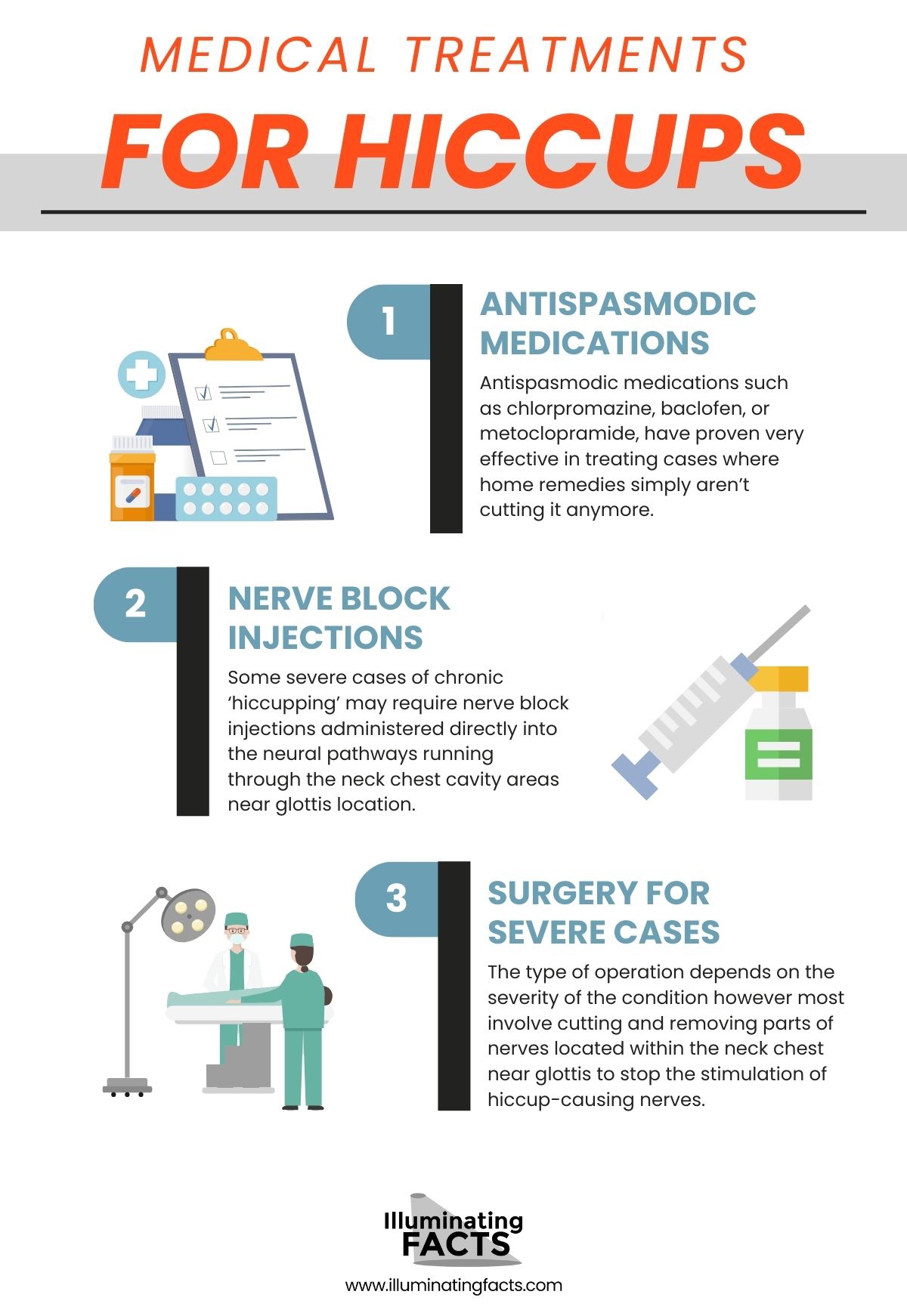It’s a weird and funny feeling when you hiccup. It is an interesting phenomenon that we all experience at one time or another. But what exactly is happening in our bodies when we hiccup, and why do they occur? Have you ever wondered what exactly causes this weird sensation? The short answer is that hiccups are caused by sudden spasms in your diaphragm. [1]
Hiccups are involuntary contractions of the diaphragm accompanied by a quick closure of the glottis, resulting in an audible ‘hic’ sound. They can last from a few minutes to several hours, and can be quite annoying (and sometimes painful).
Hiccups have many potential causes and triggers, ranging from eating habits and diet to emotional stress and anxiety. In some cases there might not be an obvious cause for hiccups. It is important to note that hiccups can also be a symptom of certain medical conditions and medications.
In this blog post, we will explore the physiology of hiccups, common causes and triggers, home remedies to try, and medical treatments for more severe cases. It also briefly covers the social and cultural significance of these vocal bursts as well as some interesting facts about hiccups.
Physiology of Hiccups
Hiccups involve a muscle and two nerves of our bodies. The main muscle is the diaphragm located beneath the lungs. It is responsible for breathing and separates the chest cavity from the abdominal cavity.
The nerves involved in hiccups are the phrenic and vagus nerve. When the phrenic nerve is stimulated, it causes the diaphragm to contract, causing a sudden intake of air. It is then abruptly stopped when the vagus nerve closes the vocal cords. [2] All of this happens very quickly with the characteristic “hic” sound.
The Reflex Arc Involved in Hiccups
The reflex arc of hiccups involves a series of events that starts with an outside stimulus or trigger (e.g., eating too fast or drinking alcohol). This stimulus sends a message to the brain through sensory neurons. The brain then sends a command to the diaphragm via motor neuron, causing its sudden contraction.
The Sound and Sensation of Hiccups
Hiccups usually produce an easily recognizable ‘hic’ sound as well as a sensation similar to that of “fluttering” in your stomach or chest area. The sensation of hiccups varies from person to person, but it is typically described as a sudden jolt or a spasm. Hiccups can be uncomfortable, but they are usually not painful and typically go away on their own within a few minutes to a few hours. Some people also report feeling lightheaded or dizzy when they hiccup which can happen due to decreased oxygen levels in their bloodstreams.
Common Causes of Hiccups
Hiccups can be triggered by various stimuli such as:
Eating Habits and Diet
Eating habits and diet are a common cause of hiccups. If you eat too quickly or too much, it may stretch or distend your stomach beyond its capacity. You may also experience hiccups because your stomach didn’t have enough time to signal that you’re full. In addition, spicy or acidic foods can also trigger hiccups by irritating the sensitive stomach tissue or on your esophagus as it passes down into your stomach area.
Drinking Alcohol or Carbonated Beverages
Alcohol can irritate your esophagus lining and act as a trigger for hiccups. Carbonated beverages, such as soda, may also cause them by releasing gas into your digestive system, causing your stomach to become distended.
Drinking alcohol or carbonated beverages too quickly can lead to increased air swallowing. It makes you feel full even when you’re not and possibly trigger hiccup reflexes in some people. Additionally, drinking too much alcohol can interfere with the normal function of the diaphragm and cause hiccups.
Ever wondered what happens when you swallow gum? Find out today.
Emotional Stress and Anxiety
Feelings of stress or anxiety can trigger hiccups due to increased activity in your autonomic nervous system. It often leads to increased muscle contractions like those associated with hiccuping. When a person experiences stress or anxiety, their breathing patterns can become irregular, which can lead to hiccups.
Medical Conditions and Medications
Certain medical conditions such as gastroesophageal reflux disease (GERD) might cause hiccups. [3] The excessive acid they produce refluxes up into the throat area, irritating sensitive esophagus tissue. Similarly, the chemotherapy drugs used to treat cancer can cause irritation along the throat lining, which can lead to unwanted hiccups.
Home Remedies for Hiccups
Now that you know why hiccups happen, here are some common home remedies to manage them:
Holding Your Breath
One classic remedy for relieving hiccups is simply holding your breath for 10-20 seconds before slowly exhaling. This simple action stimulates your diaphragm muscle causing it to relax back, so there aren’t any further reflexive spasm contractions. While this technique doesn’t always work 100% of the time, it’s definitely worth trying out if you find yourself needing a quick relief from a bout of annoying (or even painful) hiccupping!
Drinking or Gargling Water
Drinking water or gargling can also help stop hiccups. Swallowing water or gargling can help stimulate the vagus nerve, which can help regulate the diaphragm and stop hiccups. Gulping down plenty of water can help resolve chronic hiccups by distracting you from the sensations associated with ongoing spasms. It also alleviates any dryness related throat irritation.
Similarly gargling water has beneficial effects on reducing inflammation inside the throat. It acts as a calming agent allowing muscles to relax from spasm-like contractions associated with persistent hiccupping.
Swallowing Granulated Sugar
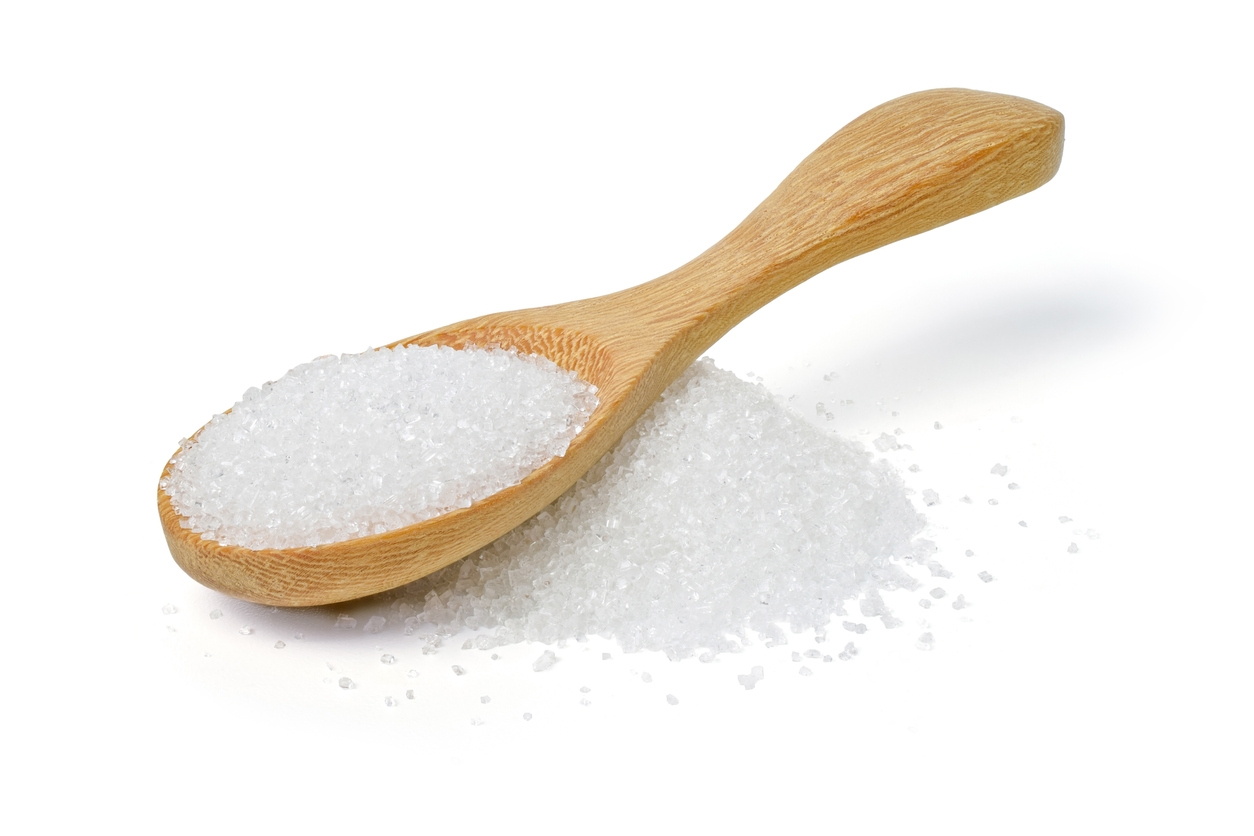
Swallowing granulated sugar has long been recommended by both traditional medicine practitioners and modern physicians for treating stubborn cases of chronic hiccupping. Sugar particles are believed to activate receptors inside the mouth, which then send calming signals down the entire nervous system, helping you find relief.
Breathing Into a Paper Bag
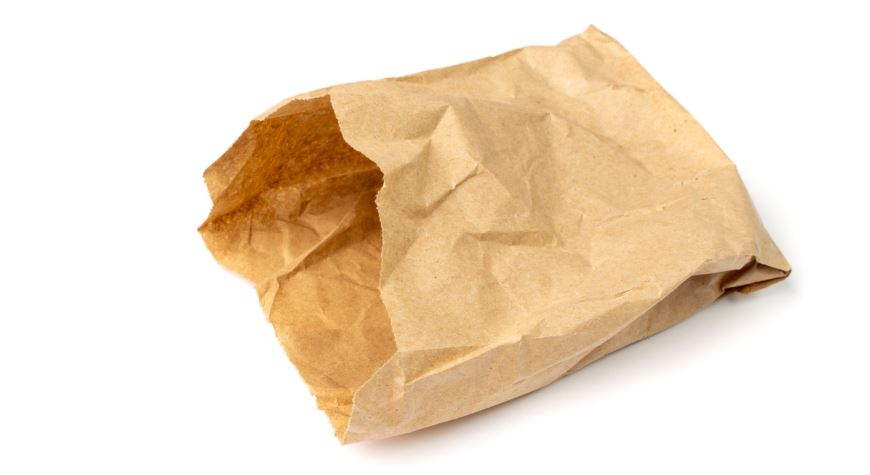
Breathing into a paper bag is another remedy that can help stop hiccups. It works by increasing the carbon dioxide levels in the blood, which can help regulate the diaphragm and stop hiccups. To do this, breathe slowly and deeply into a paper bag for a few minutes. You should practice caution when attempting this remedy, especially if you are already feeling light headed.
It’s important to note that while these home remedies may help stop hiccups in some cases, they may not work for everyone. If hiccups persist for an extended period of time or interfere with normal breathing, it is important to seek medical attention.
Medical Treatments for Hiccups
| Difference Between Regular and Chronic Hiccups | |
| Regular Hiccups | Chronic Hiccups |
| Can develop after consuming a large meal or drinking a carbonated beverage | Can be caused by underlying medical conditions or as a side effect of medication |
| Typically go away on their own | May require medical intervention for relief |
| Last for a few minutes to a few hours | Continue for over an extended period of time |
Medical treatments for hiccups may be necessary in cases where hiccups are persistent, severe, or interfere with normal breathing or eating. Here are a few examples:
Antispasmodic Medications
Antispasmodic medications such as chlorpromazine, baclofen, or metoclopramide, have proven very effective in treating cases where home remedies simply aren’t cutting it anymore. [4] Drugs like these help calm the overall muscle activity including muscles located within lung areas- thus allowing peaceful respite from incessant bouts of hiccups.
Most antispasmodics usually start working within a few minutes but should not be used excessively due potential side effects. If the case is serious, frequent dosage may be required which should be administered under doctor supervision only.
Nerve Block Injections
Some severe cases of chronic ‘hiccupping’ may require nerve block injections administered directly into the neural pathways running through the neck chest cavity areas near glottis location. [5] The injections temporarily block transmission of any impulses coming down the vagus nerve thereby alleviating the spasm-like symptoms. These injections should never be used without consulting a physician first. The expected potential side effects of this procedure include temporary numbness, tingling around the injection site, and weakness in general speaking.
Surgery For Severe Cases
In the worst-case scenario, surgery may be needed in order to permanently alleviate the problem. The type of operation depends on the severity of the condition however most involve cutting and removing parts of nerves located within the neck chest near glottis to stop the stimulation of hiccup-causing nerves.
Surgery course is the most drastic measure only considered after all other possible solutions have been exhausted. Here are some interesting facts about medical surgeries.
It’s important to note that medical treatments for hiccups are typically only used in cases of persistent or severe hiccups that are causing significant discomfort or interfering with normal breathing. In most cases, hiccups will resolve on their own or can be effectively treated with home remedies.
The Significance of Hiccups
There is so much still not known about how hiccups originated or the ways they affect us, exploring the evolutionary purpose, various social and cultural implications, as well as research on the neurobiology of this reflexive bodily action.
Evolutionary Purpose of Hiccups
The evolutionary purpose of hiccups is not entirely clear, but there are some theories. Some researchers believe that hiccups may have evolved as a way to help infants learn to control their breathing and develop their respiratory muscles. Others suggest that hiccups may have served a protective function in our distant past by helping to expel trapped air from the stomach and prevent dangerous over-inflation of the lungs.
At its core, hiccupping is a reflexive action that exists to protect our bodies. It helps prevent food or liquid from entering our lungs, protecting us against the potential consequences of aspiration.
Social and Cultural Aspects of Hiccups
Hiccups have social and cultural significance in many societies around the world. In some cultures, hiccups are believed to be a sign of good luck or a sign that someone is thinking about you. In others, they are seen as a sign of ill health or a curse. Hiccupping can be embarrassing or disruptive in social situations, and some people may feel self-conscious or anxious about experiencing them in public.
Research on the Neurobiology of Hiccups
Research has shed some light on the neurobiology of hiccups. Hiccups are thought to be caused by an involuntary contraction of the diaphragm muscle, which is controlled by the phrenic nerve. The phrenic nerve is part of the autonomic nervous system, which regulates many bodily functions that occur without conscious effort, such as breathing, digestion, and heart rate. Some studies have also suggested that hiccups may be related to the same brain circuits that control vomiting and other reflexes.
Interesting Facts About Hiccups
- Hiccup is actually a two-step process. The first step is the contraction of the diaphragm muscle, which causes a rapid inhalation of air. This is followed immediately by the closure of the vocal cords, which produces the “hic” sound. [6]
- Hiccups can also occur in animals, particularly mammals that have a diaphragm muscle, which includes most mammals such as cats, dogs, horses, and cows. [7]
- Infants and young children are more prone to hiccups because their nervous system is still developing and may be more sensitive to stimuli. [8]
- Charles Osborne has the longest recorded bout of hiccups (68 years). [9]
- In some parts of the world, people believe that hiccups are a sign of someone remembering you. [10]
Conclusion
Hiccups are part of life, inevitable but sometimes annoying. Though they often appear out of nowhere and remain just long enough for us to become frustrated by them—they actually have an important purpose. They act as a protective mechanism for our bodies making sure no harm comes our way when we eat or drink too quickly. The action possibly protects the human body when no other reaction is present against potentially dangerous situations such as choking on smaller food or ingesting something harmful to our bodies.
References
- Hiccups – Symptoms and causes. (2023, March 2). Mayo Clinic. https://www.mayoclinic.org/diseases-conditions/hiccups/symptoms-causes/syc-20352613
- Johnson, S. (2022, April 19). Finally, a scientific cure for the hiccups. Big Think. https://bigthink.com/health/hiccup-cure/
- Hiccups when suffering from gastroesophageal reflux disease. (n.d.). Bệnh viện Đa khoa Quốc tế Vinmec | Vinmec. https://www.vinmec.com/vi/gastroenterology-hepatobiliary/health-news/hiccups-when-suffering-from-gastroesophageal-reflux-disease/
- Hiccups – Diagnosis and treatment – Mayo Clinic. (2017, May 24). Mayo Clinic – Mayo Clinic. https://www.mayoclinic.org/diseases-conditions/hiccups/diagnosis-treatment/drc-20352618
- Phrenic nerve block and ablation. (2019, December 13). Pain Spa. https://www.painspa.co.uk/procedure/phrenic-nerve-block-ablation/
- Kasprak, A. (2015, May 5). 13 facts you definitely don’t know about hiccups. BuzzFeed News. https://www.google.com/amp/s/www.buzzfeednews.com/amphtml/alexkasprak/things-you-never-knew-about-hiccups
- John, U. (2015, October 6). 6 facts about hiccups. Portable Press. https://www.portablepress.com/blog/2015/10/6-facts-hiccups/
- 7 mind-blowing facts you never knew about hiccups. (2018, May 18). The Healthy. https://www.thehealthy.com/digestive-health/hiccups-facts/
- Gormly, K. B. (2022, June 13). The curious case of Charles Osborne, who hiccupped for 68 years straight. Smithsonian Magazine. https://www.smithsonianmag.com/history/the-curious-case-of-charles-osborne-who-hiccuped-for-68-years-straight-180980232/
- Smith, J. (2017, October 2). 14 fun fact about hiccups. Playbuzz. https://www.playbuzz.com/jacobsmith11/14-fun-fact-about-hiccups

